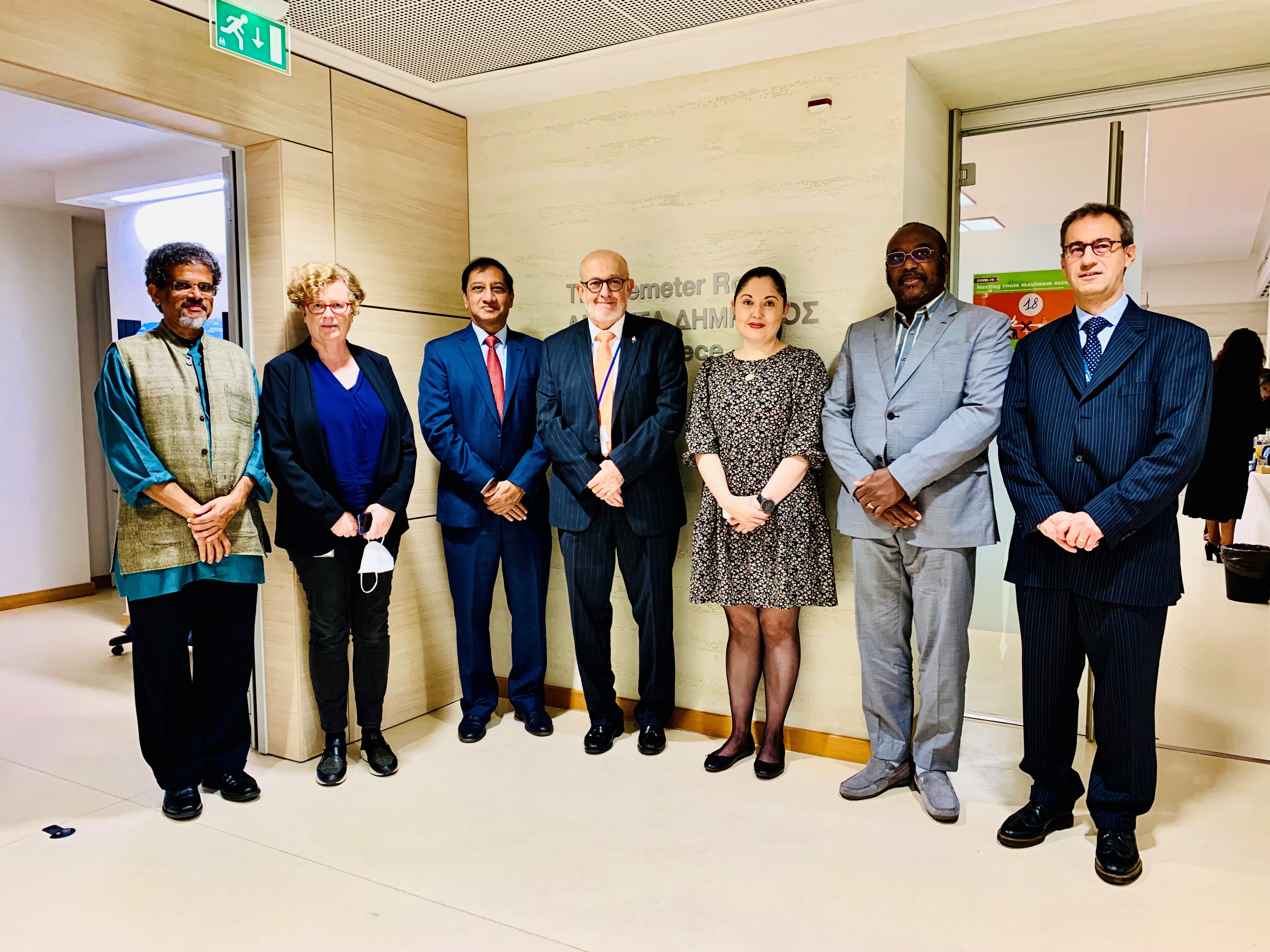70% of IFAD’s projects could cause some harm to the environment - IOE
Rome, 15 September 2022 – The soon-to-be-published report by the Independent Office of Evaluation of IFAD (IOE), titled ‘Thematic Evaluation of IFAD’s Support for Smallholder Farmers’ Adaptation to Climate Change’, “found that 70% of IFAD’s climate adaptation related projects could end up harming the environment, to different degrees”, explained Suppiramaniam Nanthikesan, Lead Evaluation Officer at IOE, and lead author of the CCA Thematic Evaluation, during the 2022 Asian Evaluation Week (AEW).
Dr Nanthikesan served as a panellist in an on-line session of the AEW, during which participants learned about factors and strategies that make evaluations influential and enhance utilization and uptake. Juha Uitto, Director, IEO, Global Environment Facility (GEF), facilitated the session which saw panel presentations by Oscar Garcia, Director, Independent Evaluation Office, UNDP; Analiza Rebuelta-Teh, Undersecretary, Department of Environment and Natural Resources, Philippines; and Ashwani K. Muthoo, Director General, Independent Evaluation Office, New Development Bank
“Our actions have consequences to ecosystems weather we intend them or not. Therefore, it is important that we are conscious and aware of what the environmental impacts of our actions are. For instance, although it is among the sectors most impacted by climate change, agriculture contributes 17% to greenhouse gas emissions”, noted Dr Nanthikesan in his intervention, contextualizing the percentage of IFAD projects that cause some degree of harm to the environment.
Systematically assessing and analysing these consequences and their impacts is essential in order to produced a credible body of knowledge, to help ensure its utilization and to hold organizations accountable. In this regard, it much easier for evaluations if the organization itself recognizes that the environment is an issue that they have to worry about in their interventions, and makes it a corporate priority, Dr Nanthikesan highlighted.
IFAD was one of the pioneers in the UN system to recognize this need, and to evaluate the intended and unintended environmental consequences of development interventions. Since 2011, IOE has institutionalised environmental and social considerations in all its evaluations. Today, its reports are required to assess the performance of projects along a prescribed set of evaluation criteria. These include how well the interventions promoted environmental and natural resources management and strengthened adaptation to climate change.
“Other organizations could benefit from IFAD’s experience in institutionalizing evaluating environmental impacts in all its evaluations, including through evaluation policies. There should be clear guidance on how to mainstream environmental consequences in all evaluations. You also need the necessary resources and capacity in the evaluation team to carry out the assessments”, Dr Nanthikesan stated.
The AEW, now on its 7th year, is a leading evaluation knowledge sharing platform in the Asia and Pacific region. Held on 13-15 September 2022, in hybrid modality, the subthemes of this year’s event were ‘innovating and retooling evaluation towards resilient recovery’, ‘driving collective actions on country-based evaluation’, and ‘influential evidence-based evaluation for green, healthy and inclusive societies’.
For further information, please contact Alexander Voccia at [email protected]
